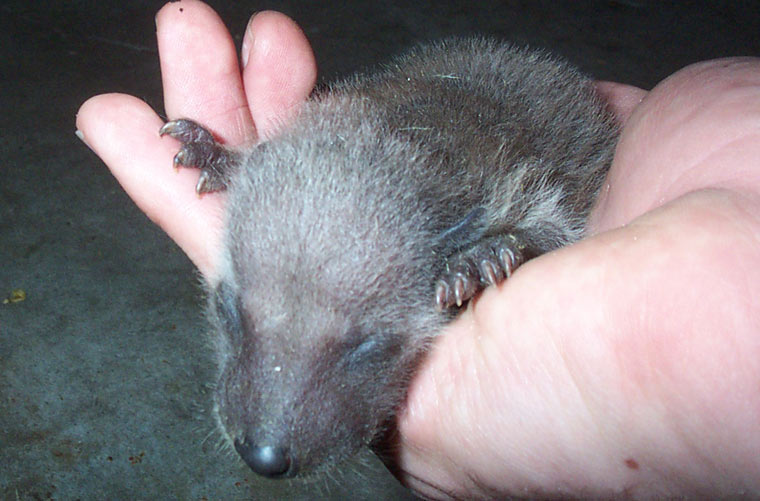- info@wildlife-removal.com
Call us for help in your town
Wildlife Removal Education
What should you do if you find a baby raccoon on its own?
Need raccoon removal in your hometown? We service over 500 USA locations! Click here to hire us in your town and check prices - updated for year 2020.
If you spot any wild baby animal alone, leave it alone. We know that you want to do your bit, but the reality of a situation can often look very different to what is being perceived by your head. Think about things a slightly different way for a moment; what if that raccoon is currently in the process of being moved from one den site to another, by its mother?

What might look like an orphaned or abandoned baby wild animal can sometimes not be. If you were to pick up a raccoon kit that was in the process of being moved by its mother, she would reject the youngster when she smells that it has your scent all over it. She will no longer recognize that baby as her own. By trying to be a "Good Samaritan" and save the young kit, you may have just caused its demise.
If you do encounter a baby wild animal and you want to do something, you could give local wildlife rehabilitators a telephone call. If you see a raccoon baby, there is a mother nearby. If that baby is on or close to your property, there is a good chance that the raccoon mother and the rest of her babies are on your property. In some ways, that baby raccoon that has been left all alone is your warning alarm. It is time to start taking action.
You MUST NOT approach the animal if you aren't sure that it is definitely alone (i.e., waited enough time for the mother to come back and claim her young). You should also steer clear until you have adequate protection, including heavy-duty gloves that the animal (or its mother) can't scratch through. You must remember the rabies risk at all times. It's a virus that can lie dormant for quite a long time, so a seemingly fit and well animal could be infectious without you realizing.
If you happen to have some thick gardening gloves, an old box, an old towel, and perhaps a hot water bottle, you could create a warm little haven for the animal, giving it a chance to survive a bit longer, in case its mother comes back. You must remember that, in some cases, death is inevitable. If that youngster is sick, the mother WILL abandon it. It will also die regardless of your efforts to prevent it in almost all cases. Make sure the hot water bottle isn't too hot and is safely and securely wrapped up by the towel. Again, you must remember that you're running the risk of interfering with the natural smell of the youngster — the mother could still reject her baby even after she has come back for it, especially if it has your smell all over it.
After a baby raccoon has been lost or abandoned, it has a window of up to 48 hours for things to get better — the mother to come back and claim her baby. In the majority of cases, the mother will return for her young within 12-24 hours. If, after 48 hours the youngster still hasn't been safely returned back to its family, you could call in wildlife rehabilitators to see whether or not it can be saved, or if a more humane euthanized outcome is more appropriate. Read about I found a baby raccoon. Should I feed it?
Go back to the Raccoon Removal page, or learn tips to do it yourself with my How to Get Rid of Raccoons guide.


















